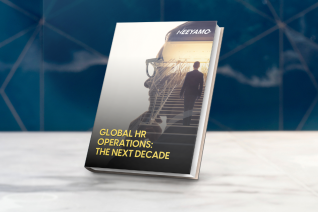Establish your presence globally with Neeyamo's Global Payroll Solutions as we help you go beyond borders to manage your international payroll and hire new talent in Botswana.
Overview
Botswana is a country in Africa, that shares its borders with Namibia, Zambia, Zimbabwe, and South Africa. The prominent industry in the country includes mining, agriculture manufacturing, tourism, telecommunication and internet service, banking, and financial industry.
Neeyamo provides assistance for the onboarding and management of employees in Botswana along with the processing a firm's payroll, compliance, benefits, and more.
Tools And Instances
Facts And Stats
Capital
Gaborone
Currency
Pulas (BWP)
Official Language
English
Fiscal Year
1 July (Preceding year) - 30 June (Current year).
Date Format
DD/MM/YYYY
Country Calling Code
+267
Other Languages
Setswana, Kalanga, Kgalagadi, Shona, Ndebele, Mbukushu, Tshwa, !Xóõ
Time Zone
UTC +02:00
Global Payroll
Overview
Handling payroll for a widespread workforce can pose a significant challenge for any organization, and the added complication of compliance can make things worse. If companies spend more time processing payroll, it directly impacts day-to-day operations and their overall productivity.
Over the years, Neeyamo has observed these complexities and strived to provide a global payroll solution through a single technology platform - Neeyamo Payroll.
What are payroll liabilities?
Payroll liabilities are payments related to your payroll that need to be made such as wages, payroll taxes, deductions, etc.
Payroll Taxes
Payroll tax is the percentage amount retained from an employee's salary and paid to the government to invest in the general population's welfare. These are statutory in nature and are levied from both the employer and employee. Additional statutory contributions are made by employers towards aiding both short-term and long-term benefits for their employees.
Employee Taxes
Resident tax rates vary from 0-25% depending on their taxable income, and non-resident taxpayers contribute anywhere from 5-25% depending on their income.
Employer Taxes
There are no social taxes in Botswana. However, the country does operate under a Pay As You Earn (PAYE) system that varies for resident and non-resident taxpayers. Resident tax rates vary from 0-25% depending on their taxable income, and non-resident taxpayers contribute anywhere from 5-25% depending on their income.
Payroll Cycle
Overview
Undoubtedly, payroll is a critical process for any organization. The payroll cycle in Botswana refers to the period for which an organization pays its employees, and this can vary depending on the pay frequency that the organization chooses to adopt.
Frequency
Botswana employees are paid monthly, and their pay periods vary throughout the second half of the month. Payday often falls between the 15th and the last day of the month.
13th Month Cycle
Employers are not required to give bonuses to their staff members in Botswana, although they are free to do so as part of their remuneration package.
Global Work
Overview
An Employer of Record services (EOR) provider helps you eliminate the hassle of handling complexities while onboarding a new employee in an international location. They help bridge the gap that otherwise mandates organizations to have a local registered entity and a local bank account, prior to making a job offer to an international hire.
An Employer of Record services provider acts as a legal employer, facilitates salary payments, and manages other statutory requirements such as health insurance, payroll taxes, and employee benefits ensuring compliance with local tax laws and regulations.
This allows organizations to focus on collaborating with the employee in Botswana for operational tasks, with the knowledge that they have a cost-effective solution support their global payroll & HR requirements, as they continue their global expansion.
HR Mandates and Practices
Minimum Wage
Minimum wages in Botswana as per industry:
- Construction of buildings, Exploration and Quarrying Industries - BWP7.34 per hour
- Wholesale Distributive Trades - BWP7.34 per hour
- Hotel, Catering and Entertainment - BWP7.34 per hour
- Garage, Motor Trade and Road Transport - BWP7.34 per hour
- Manufacturing, Service and Repair Trades - BWP7.34 per hour
- Retail Distributive Trades - BWP6.34 per hour
- Watchmen Employed in Industries and Trades - BWP7.34 per hour
- Security Guards Employed by Security Companies - BWP7.34 per hour
- Domestic Service Sector - BWP1,084.00 per month
- Agriculture, forestry and fishing - BWP1,084.00 per month
Overtime
Any job performed in Botswana that goes past 48 hours is regarded as overtime, for which workers are compensated extra.
200 percent of the regular compensation is deducted for rest time when working on holidays or weekends. In general, the workweek is limited to 48 hours, with no more than 9 hours per day for a 5-day week, or 8 hours per day for a 6-day week. The employees may not work more than 14 hours of overtime per week. Employers are required to pay 1.5 times the normal wages for hours worked in excess of the ordinary daily working period. For rest days and public holidays, the rates are double the hourly wages.
Data Retention Policy
Every employer of employees to whom a minimum wages order applies shall keep, in Setswana or English, such records as may be prescribed for the enforcement of this Part and shall retain them for at least 5 years immediately after the date of the last entry therein.
Hiring and Onboarding Requirements
Hiring
In Botswana as an employer, you cannot directly or indirectly discriminate against an employee or candidate based on race, gender, sex, marital status, ethnic origin, colour, sexual orientation, age, disability, HIV status, or politics. While screening candidates, you cannot ask questions or use any criteria that could lead to discrimination.
Engage in non-discriminatory hiring: Botswana’s Employment Act prohibits discrimination against a candidate or employee because of race, gender, sex, ethnicity, marital status, age, sexual orientation, disability, political affiliation, or HIV status. The Act encourages applications from people of all backgrounds. It does not discriminate on the basis of disability, race, colour, ethnicity, gender, religion, sexual orientation, age, veteran status, or other categories protected by law.
Onboarding
The following information is required during onboarding in Botswana:
- Name
- Address
- Date of birth
- Copy of Identification Id
- Educational details
- Previous Employment certificate
Probation
In the case of a contract of employment for an unspecified period of time (other than a contract of employment for a specified piece of work, without reference to time), such period not exceeding three months in the case of unskilled employees, and twelve months in the case of skilled employees, as the contract may specify immediately after the commencement of employment under the contract may be a probationary period.
Leave
Public Holidays
Botswana celebrates 8 National holidays:
- Jan 1: New Year Day
- Jan 2: New Year Day
- Jan 3: New Year Day
- Apr 7: Good Friday
- Apr 8: Holy Saturday
- Apr 10: Easter Monday
- May 1: Labour Day
- May 18: Ascension Day
- Jul 1: Sir Seretse Khama Day
- Jul 17 and Jul 18: President's Day
- Sept 30: Botswana Day
- Oct 1: Day off for Botswana Day
- Oct 2: Day off for Botswana Day
- Dec 25: Christmas Day
- Dec 26: Boxing Day
Sick Leave
If an employee is away from work for more than 24 hours, they must notify the employer as soon as feasible. Employees are entitled to up to 14 days of paid sick leave with a doctor's note.
Maternity Leave
In Botswana, the first six weeks of maternity leave are taken before the projected due date, while the final four weeks are taken following delivery. Employees who are female have a right to 12 weeks of maternity leave.
Paternity Leave
Paternity leave is not mandated by law.
Annual Leave
Employers are required to grant employees a minimum of 15 paid days of annual leave per year.
Termination
Termination
An employee can be provided with written notice in case of termination.
Notice Period
The notice period is equal to the employee's pay period. The notice period is one month if the employee is paid on a monthly basis. The notice period is one week if the employee is paid weekly.
If an employee is fired due to misconduct or subpar performance, no notice is necessary.
Severance Pay
An employee is eligible for severance pay after 60 consecutive months of employment with the company. Severance pay is calculated as per the day of pay for each month until 60 months of employment, with 2 adds added for further months.
Visa
Types of Work Visas
Botswana has one work visa, also known as a work permit, for all foreign employees working in the country under the Employment of the Non-Citizens Act. Employers cannot engage an employee unless they hold a valid Botswana work permit or a certificate of exemption. The Immigration Board reviews all permits, then issues an appropriate validity period. Typically, employees can renew their permits by going through the initial application process again.
Requirement of Work Visas
As an employer, you must show:
- Proof that you tried to recruit Botswana citizens first
- Proof of a job advert that listed candidate requirements, contact details, a minimum advertising period, and an exclusive period during which only Botswana citizens could apply
- Proof that the advert circulated for at least 14 days and that applications were open only to Botswana citizens during that period
- Proof that the advert is no older than six months Employees have their own separate requirements, including:
- A valid job offer reflected in employment contract or appointment letter
- A work application
- A CV
- Certified copies of key certificates, including birth, marriage, and educational certificate, all translated into English.
- Medical report
- Certified copies of a valid passport
- Passport Size photos
- Application labor form
Visa Application process
After filling out an application and compiling the documents listed above, employees must submit their application and fee to an authorized officer. The officer will review the application, make a recommendation, and even call the applicant in for an interview if necessary. If they approve, the officer will forward the application for consideration with the Regional Immigrants Selection Board. They can meet at any stage to request more information. They’ll also put more emphasis on a program that trains a Botswana citizen to replace the non-Botswana worker.
In total, it takes about 30 working days from the first submission of the application to receipt of a Botswana work permit. If the application gets turned down, your employees can appeal the decision. This process is common, and the National Immigrants Selection Board will follow the review process for all appeals.
Employee Background Checks
Legal and Background Checks
Background checks available in Botswana. Past employment verification is recommended for all employees.
Last updated on August 8, 2023.
If you have any queries or suggestions, reach out to us at irene.jones@neeyamo.com
Have Queries? Get In Touch With Us
Get in touch with one of our experts and take a quick demo of our services








